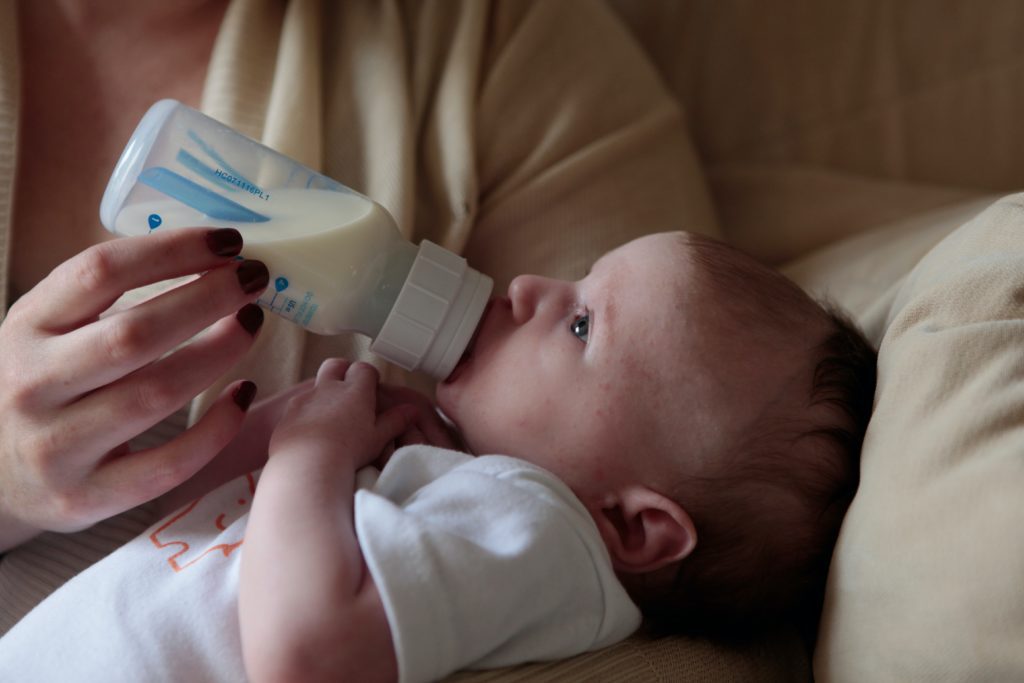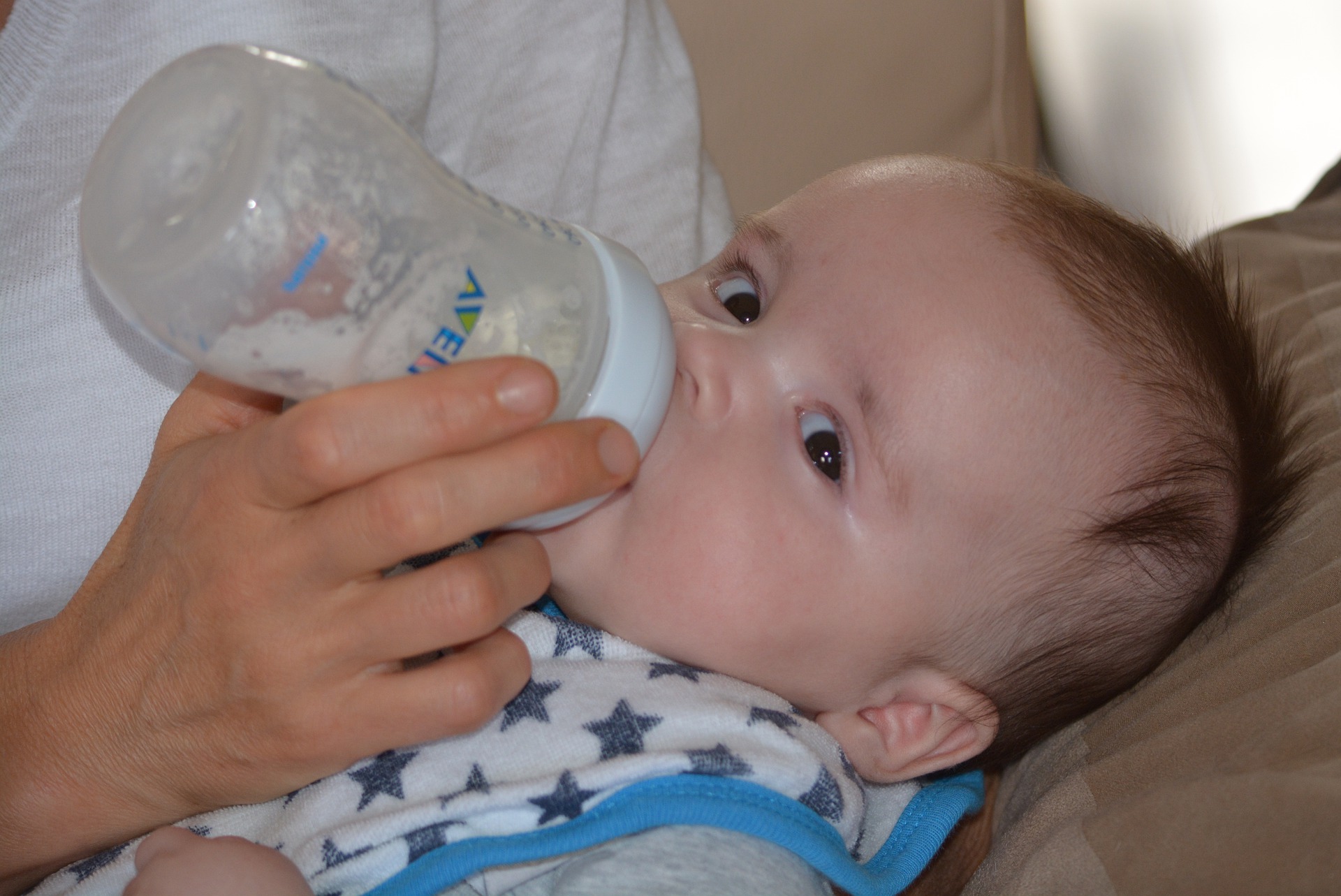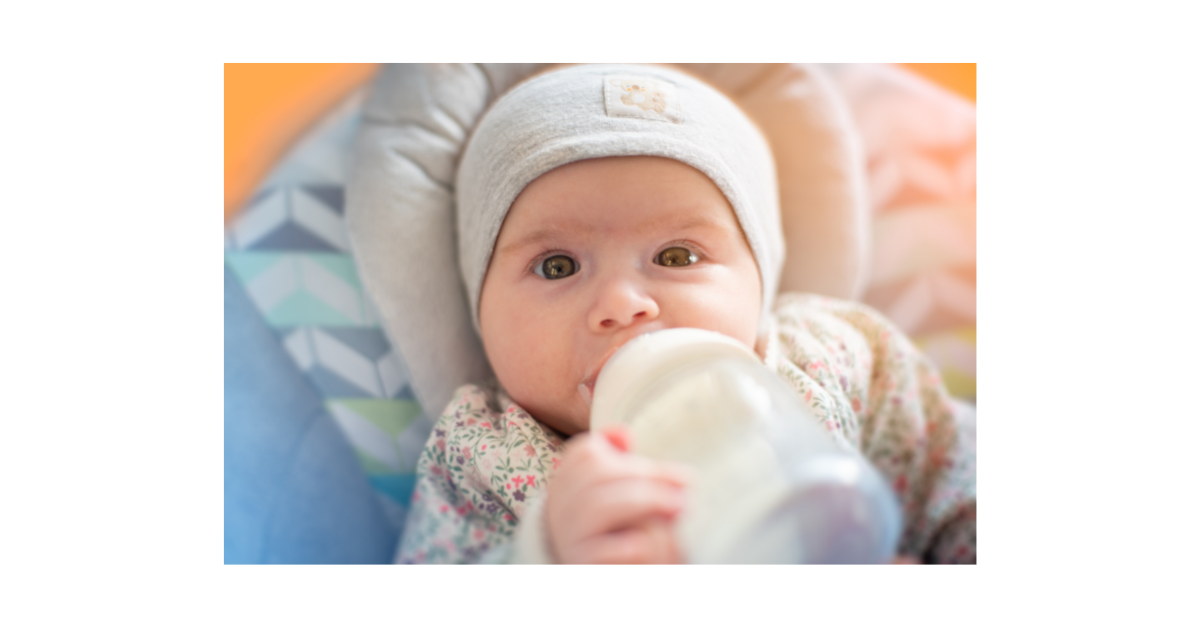
When you become a parent, one of your primary concerns is keeping your baby healthy and safe. If you are concerned that your baby has allergies or is at risk of developing them then you are in the right place as we take a look at this ultimate guide about hypoallergenic baby formula. Now let’s get to it!
Table of Contents
- What Is Hypoallergenic Baby Formula?
- The Benefits Of Hypoallergenic Baby Formula
- Types Of Hypoallergenic Baby Formulas
- Hypoallergenic Formulas On The Market Today
- Making Homemade Baby Formula At Home
- Tips For Parents On Using Hypoallergenic Baby Formula:
- Sharon’s Final Words
Here, we will discuss the different types of formulas available on the market and the pros and cons of each. We will also provide parents tips on making hypoallergenic baby formula at home. So whether you are looking for store-bought or homemade, the information you are looking for is available here!
What Is Hypoallergenic Baby Formula?
Hypoallergenic baby formula is specially designed for babies who are allergic to cow’s milk protein or who are at risk for developing allergies. It is made with hydrolyzed protein, which means that the proteins have been broken down into smaller pieces that are less likely to cause an allergic reaction. This type of formula can also be easier for babies to digest.
The Benefits Of Hypoallergenic Baby Formula
There are several benefits of using this formula, including the following:
- It can help prevent or reduce the severity of allergic reactions in babies who are allergic to cow’s milk protein.
- It can help prevent or reduce the severity of gastrointestinal symptoms, such as diarrhea and vomiting, in babies who are allergic to cow’s milk protein.
- It can help reduce the risk of developing eczema in babies who are at risk for developing allergies.
- It can help reduce the risk of developing asthma in babies who are at risk for developing allergies.
Types Of Hypoallergenic Baby Formulas
The two main types are soy-based and protein hydrolysate. Soy-based formula is made from soy protein that has been broken down into smaller pieces. This makes it easier for your baby’s digestive system to process and helps to prevent allergies. Protein hydrolysate formula, on the other hand, is made from cow’s milk or whey that has been broken down into smaller pieces. This type of hypoallergenic baby formula is less likely to cause an allergic reaction but can be more expensive than soy-based formulas.
Soy-based has the following pros:
- It is less likely to cause an allergic reaction than a protein hydrolysate formula.
- It is easier for your baby’s digestive system to process.
- It is more affordable than the protein hydrolysate formula.
The cons of soy-based include:
- Some babies may be allergic to soy proteins.
- Soy contains phytoestrogens which can mimic the hormone estrogen in the body and may disrupt normal development in some infants.
- Soy formulas can also contain goitrogens, which are substances that can interfere with the functioning of the thyroid gland.
Protein hydrolysate has the following pros:
- It is less likely to cause gastrointestinal symptoms, such as diarrhea and vomiting.
- It can help reduce the risk of developing eczema.
- It can help reduce the risk of developing asthma.
The cons of protein hydrolysate are:
- It is more expensive than soy-based.
- It can be harder to find in stores.
- Some babies may still have allergic reactions to this type of hypoallergenic baby formula.
Hypoallergenic Formulas On The Market Today
There are several hypoallergenic baby formulas available on the market today, including the following: Gerber Good Start Gentle, Enfamil Nutramigen, Similac Alimentum, Earth’s Best Soy Infant Formula, Baby’s Only Dairy with DHA & ARA. These formulas can help to prevent or reduce the severity of allergies in babies.
It is important to speak with a doctor before choosing since some formulas may not be appropriate for all infants. This type of formula can also be more expensive than regular baby formula so it is important to compare prices and choose the formula that is best for your budget. If ever you are short on budget, you can always opt to have a homemade hypoallergenic baby formula
Making Homemade Baby Formula At Home

There are both pros and cons to making hypoallergenic baby formula at home. On the plus side, you will know exactly what ingredients are going into your baby’s formula, you can avoid any potential allergens, and they are relatively cheaper. However, there are also some drawbacks. For example, it can be time-consuming to make, and you will need to sterilize all of the equipment properly. Additionally, there is always a slight risk of contamination when making any type of formula at home.
There are two ways to make hypoallergenic baby formula at home: using a commercial hypoallergenic formula base or following a recipe. If you use a commercial hypoallergenic infant formula base, simply follow the instructions on the package. If you want to make hypoallergenic baby formula at home, there are many recipes available online. Some of the ingredients you will need include:
- Hypoallergenic Infant Formula Base
- Water
- Vegetable
- Oil Cornstarch
Simply mix all of the ingredients and store them in a clean, airtight container. Homemade hypoallergenic baby formula should be used within 24 hours of preparation.
Tips For Parents On Using Hypoallergenic Baby Formula:
- Talk to your pediatrician before switching formulas to make sure it is right for your child.
- Follow the instructions on the package.
- Do not add anything to the hypoallergenic baby formula unless directed by your pediatrician.
- Store hypoallergenic baby formula in a clean, airtight container and use it within 24 hours of preparation.
- If you are using commercial hypoallergenic baby formula, be sure to check the expiration date before using it.
By following these tips, you can help ensure that your child gets the nutrition they need while avoiding an allergic reaction. Hypoallergenic baby formulas can provide peace of mind for parents who are concerned about their child’s allergies.
Sharon’s Final Words
In conclusion, hypoallergenic baby formulas can be a great option for babies who are allergic to cow’s milk protein or who are at risk for developing allergies. There are two main types of hypoallergenic baby formulas: soy-based and protein hydrolysate. Each type has its own set of pros and cons that you should consider before making a decision.
There are a lot of available brands of hypoallergenic baby formulas on the market today but you can also opt to create a homemade substitute for a less expensive alternative. Whatever you choose be sure to follow our tips and consult your baby’s doctor before you make the switch. Thanks for your time, may you find the formula best suited for your little ones!
Thanks for reading my posts!
Sharon











